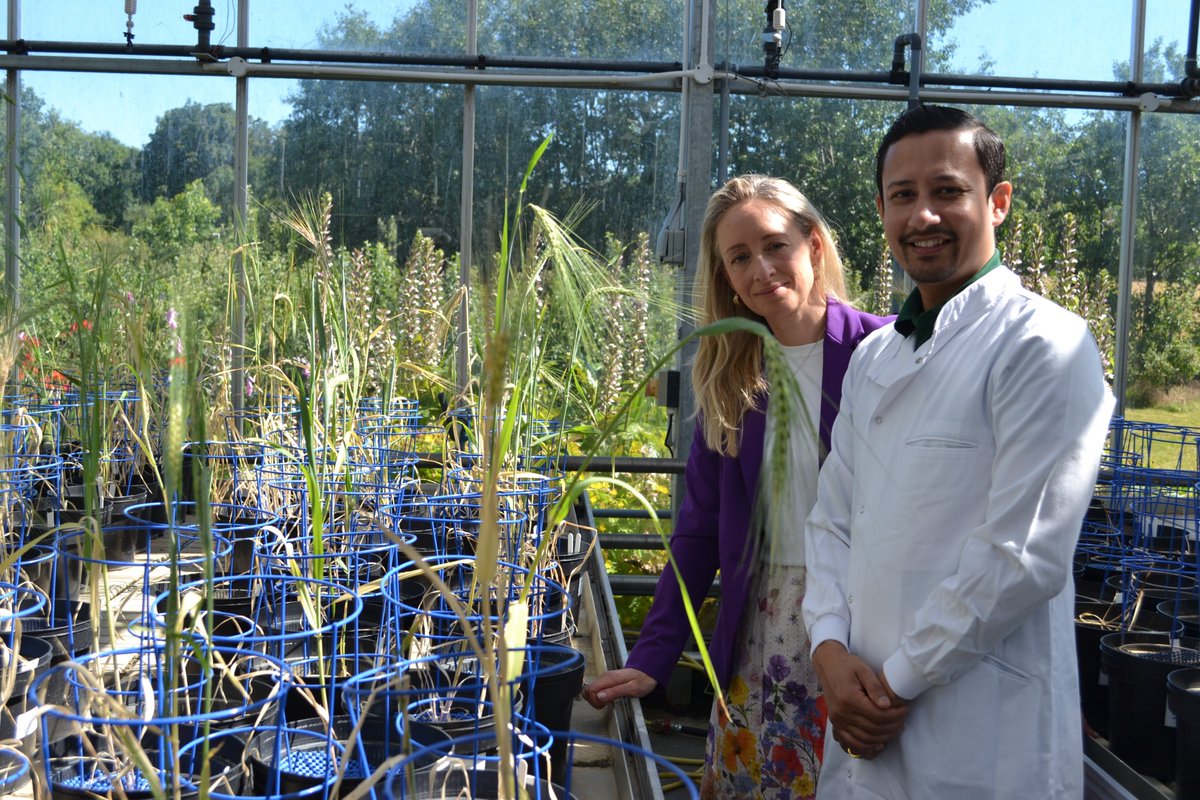A €14.6 million investment was announced in July for 25 projects under the Research Ireland Pathway Programme. The Programme supports early-career research across all disciplines to encourage a cohesive research ecosystem in Ireland. The awards will enable postdoctoral researchers to develop their career pathway and transition to become independent research leaders. The 25 research projects will be funded through 13 research bodies.

The SURG-Water team wins the SDG Challenge focused on SDG 13: Climate Action
In July, SURG-Water was announced as the winning project in the Research Ireland-Irish Aid Sustainable Development Goals Challenge, focused on SDG 13: Climate Action.
Prof. Kevin McGuigan, and Dr Jakub Gajewski of RCSI University of Medicine and Health Science, with partner team lead, Prof. Christabel Yollandah Kambala, Malawi University of Business and Applied Sciences, won the SDG Challenge with an innovative, low-cost solution to providing clean water to healthcare facilities in Malawi.
14 research awards received funding through Research Ireland’s Public Service Fellowship Programme in March.
The Research Ireland Public Service Fellowship programme offers academic researchers a unique opportunity to be temporarily seconded to Government departments and agencies and work on specific collaborative research projects. The fellowships help to foster innovation and provide an evidence base for policy, through close collaboration and engagement within the public sector and academic research community.
The projects represent a total grant funding in excess of €1.25 million. Co-funding partners include the Environmental Protection Agency, Geological Survey Ireland and the Sustainable Energy Authority of Ireland.

A total of €60 million in funding announced under the Research Ireland Frontiers for the Future programme
A total of €60 million in funding was awarded to 68 projects under the Research Ireland Frontiers for the Future programme this year.
In May, 28 funding awards valued at €34 million were announced under the Research Ireland Frontiers for the Future programme. The awards are of 4-5 years’ duration and will support 124 research positions including 58 postdoctoral positions, 53 PhD students and 13 research assistants and other positions. This programme was funded in collaboration with SEAI.
In October, €26 million for 40 research projects was announced under the programme. The projects address key areas such as environmental sustainability, new EV battery technologies, breast cancer, inflammatory bowel disease, and currently untreatable childhood neurological disorders. As a Frontiers for the Future partner, Children’s Health Foundation is funding two of the 40 projects (childhood epilepsy and cystic fibrosis) and co-funding another project with Research Ireland (bone cancer).
The DOROTHY programme invests €2.6 million in funding for ten fellows
The DOROTHY COFUND programme announced an investment of €2.6 million in funding for ten fellows in June. The fellows will tackle public health crises from a variety of disciplinary perspectives. The DOROTHY programme is a postdoctoral research programme co-funded by the European Union’s Horizon 2020 research and innovation programme under Marie Skłodowska-Curie Actions (MSCA). Three Irish funding agencies, Research Ireland, Health Research Board (HRB) and the Environmental Protection Agency (EPA) Ireland, have collaborated to create this interdisciplinary fellowship programme.
A €104 million investment announced for four Research Ireland Centres
The funding was allocated to four Research Ireland Centres: BiOrbic Bioeconomy Research Ireland Centre; FutureNeuro Research Ireland Centre for Neurological Diseases; I-Form Research Ireland Centre for Advanced Manufacturing; and VistaMilk Research Ireland Centre. An additional €21 million was been committed by these Centres’ industry partners.
The four Centres announced represent an important national research network of 17 host and partner institutions that have collaborated with over 130 industry partners ranging from SMEs to multinationals, across all regions and in a variety of sectors.
The targeted funding will support over 600 highly-skilled research positions in the bioeconomy, agrifood, neurological disease and advanced manufacturing, over the next six years
€4.3m in funding announced under the Enterprise Partnership Postgraduate and Postdoctoral schemes
In December, Research Ireland announced funding of €4.3m that will enable 35 postgraduate and postdoctoral candidates across 13 higher education institutions to collaborate with an enterprise partner on a research project of mutual interest.
The Enterprise Partnership Postgraduate and Postdoctoral schemes provide postgraduate and postdoctoral candidates, hosted by a research-performing institution, with the chance to gain valuable experience in the early part of their careers, with participating enterprise partners benefitting from having fresh perspectives, expertise, ideas and knowledge
Development of spray-on, wash-off bandages for Epidermolysis Bullosa; reducing carbon emissions in Ireland’s construction industry; and genetic analysis to assist red squirrel conservation in Britain and Ireland were among the successful projects
A €7 million joint investment announced for the US-Ireland Research Programme
A combined investment exceeding €7 million was announced in March through the US-Ireland programme – a tripartite research and development (R&D) partnership between the United States of America (USA), Republic of Ireland (RoI) and Northern Ireland (NI).
Under the Programme, six awards were announced spanning 11 institutions which will support more than 11 research positions in RoI, 10 research positions in NI, and over 20 positions in the US. The funded projects, covering three to four years, include research in the areas of sustainable collection and management of water, photonic integrated circuits, wearable sensors to monitor health, telecommunications, and microbial activity.
National Challenge Fund Finalists awarded ‘Grow Phase’ Funding
In July, €4.5 million funding was announced for the first nine teams become finalists in the competitive funding model. The nine teams selected will have the opportunity for additional funding in the final phase of the programme, where prize funding of €1 million will be on offer to the most competitive teams under both the 2050 and the Future Digital Challenges. The teams that received funding were split across two challenge areas.
- The 2050 Challenge seeks transformative, forward-looking solutions to current and future challenges for Ireland in becoming climate neutral and resilient by 2050.
- The Future Digital Challenge seeks to realise transformational societal and economic impact from disruptive digital technologies.
In December, over €9 million was announced for National Challenge Fund finalists. The teams selected will have the opportunity for additional funding in the final phase of the programme, where prize funding of between €1-2 million will be on offer to the most competitive teams under each Challenge. The teams receiving funding are split across the following challenge areas:
- The Energy Innovation Challenge seeks solutions that will accelerate Ireland’s transition to a clean and secure energy system.
- The Digital for Resilience Challenge seeks solutions that will enhance Ireland’s capabilities in crisis prediction and response.
- The Healthy Environment for All Challenge seeks solutions to ensure clean and healthy air, water and soil for humans, animals, and plants.
- The OurTech Challenge seeks solutions to enhance the connections between government, communities, and people.
An investment of €27.5m in funding was announced in October for 290 projects under the Government of Ireland postgraduate scholarship and postdoctoral fellowship programmes. The Government of Ireland schemes support exceptional early-career researchers to pursue cutting-edge research with world-class potential in any discipline across the sciences, engineering, arts and humanities. The scheme is a unique facet of the Research Ireland portfolio, facilitating early-career researchers to lead on the development and implementation of their research idea. The investment this year will fund 210 postgraduate scholars and 80 postdoctoral fellows.

Celebrating public awareness, curiosity and passion for discovery and research in Ireland
A €5 million investment in 38 projects which encourage understanding of science, technology, engineering and mathematics (STEM) was announced under the Research Ireland Discover programme in February. The funding will create greater public awareness of the impact of STEM on society and everyday life, generate opportunities for dialogue and encouraging diversity in STEM-related disciplines.
Science Week is a nationwide celebration of STEM that aims to inspire curiosity, ignite a passion for discovery, and promote the importance of STEM education and research in Ireland. Science Week 2024 took place 10th – 17th November and offered a diverse range of activities and events for people of all ages to engage with.
As part of Science Week 2024, Alf, a giant puppet of a smooth Newt, paraded through Dublin’s city centre, sparking conversations about climate change and habitat loss. Solaris appeared in the Marina Market Cork and Saint Nicholas Church Galway, bringing audiences on a journey through the life stages of a star. Over thirty festivals and events funded under the Science Week Programme Call engaged with people of all ages, exploring this year’s theme of regeneration.
Establishment of Taighde Éireann – Research Ireland
Taighde Éireann – Research Ireland, Ireland’s new competitive research and innovation funding agency, was established on 1st August 2024. The new agency amalgamates the activities and functions of the Irish Research Council and Science Foundation Ireland. The establishment of Research Ireland is the keystone of Impact 2030: Ireland’s Research and Innovation Strategy. Research Ireland will promote and support the contribution of research and innovation to Ireland’s economic, social, cultural, and environmental development and sustainability, as well as strengthen the engagement between the research and innovation system and enterprise, Government and public bodies, the voluntary sector and society.